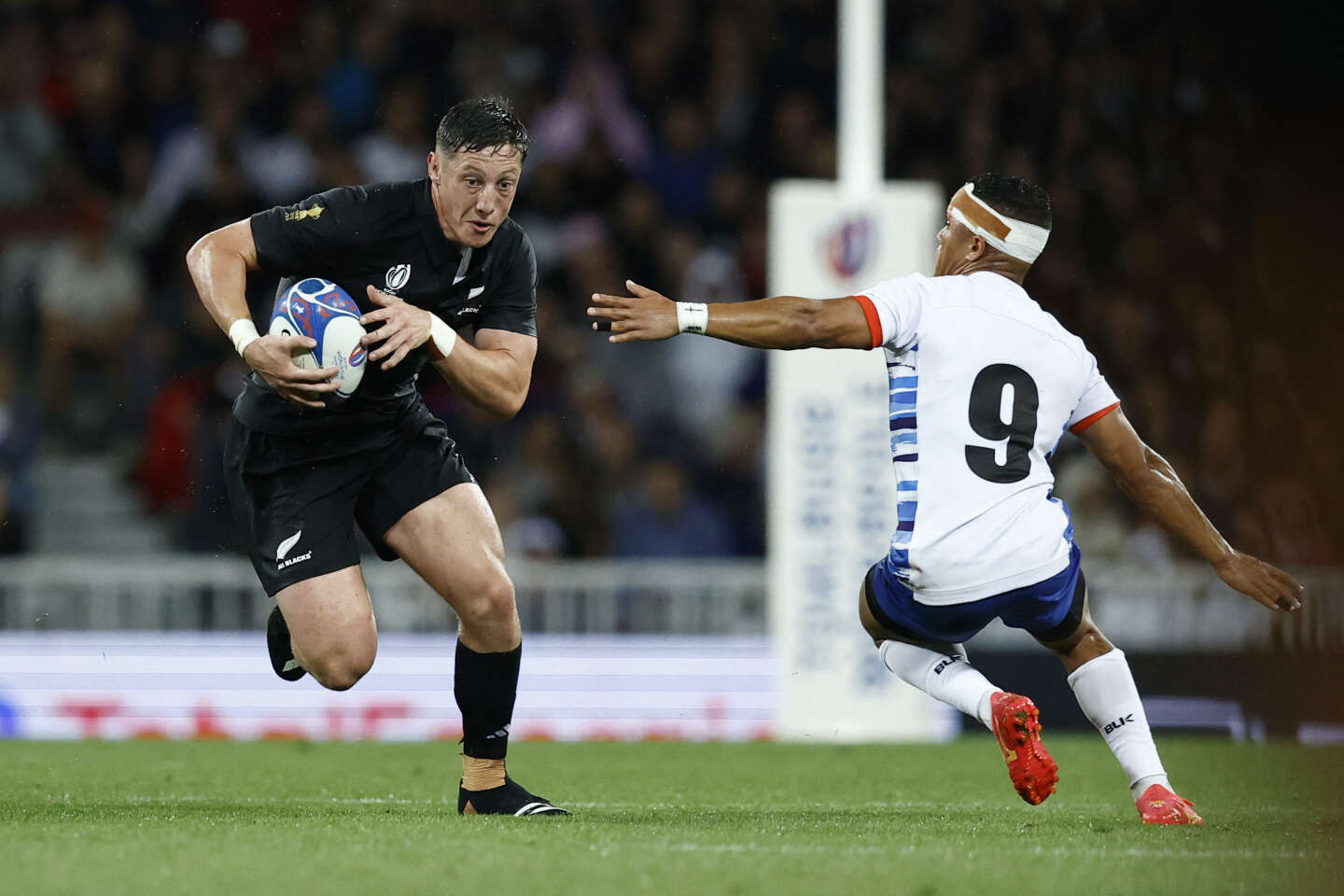
Sweeping a weakened Namibia, the All Blacks breathe but remain in the dark

The world of rugby is a bit like a schoolyard. On the one hand, popular and charismatic students, who run faster, jump higher and can afford fashionable clothes. They are not more interesting than others, but they accept the light better and are reluctant to mix with less well-off, shy and eccentric people. This is the case with rugby: if the elite nations compete year-round, the nations on the fringes of rugby compete under the radar, doing their best at little cost and having to wait. Discipline.
Some rise to the occasion, like Uruguay’s match against France. Others are disappointed. This is the case of Namibia, which faced the New Zealand Ogre for the third time in its history and for the third World Cup in a row, on Friday, September 15, in Toulouse. For eight years, the reign has been steady for the Namibians: they were beaten 58 to 14 in London in 2015, then swept 71 to 9 in Tokyo four years later, and were crushed again (71 to 3) by the generally superior New Zealanders.
“skillful work”
The All Blacks were counting on this match to verify that their style of play, which has seen them reach such heights, is still successful: powerful forwards who put space-gobbling full-backs into orbit. Faced with battle-weary and defenseless Namibians, things went well.
Their dominant control, devastating through balls and ferocious collisions gave New Zealand’s attackers plenty of space to unleash their arrows. So they logically scored eleven tries. “skillful work” New Zealand coach Ian Foster, barely sitting in his seat, said in a post-match press conference: “We came with a clear idea of how we wanted to approach this meeting. Our group allowed us to play and create opportunities.” The technician argued. “You have to congratulate the New Zealand team. I saw things from them that I haven’t seen for a long time. They were very strong for us.” Confessed, half-fatalistic, half-admiring, Alastair Coetzee, the evening coach of their opponents.
This match in the French rugby capital may be remembered by history as having led to the emergence of young midfielder Cam Roegaard at international level. In his third selection and first start, the former racing driver has relished the Namibian defense and undoubtedly moved up a few steps in the pecking order to succeed Aaron Smith, the position holder. His speed around the rocks, combined with the sight of Damian McKenzie, the fly-half he partnered with, turned the Namibians’ heads. “He played very well. It’s something [pour un demi de mêlée] “It’s one thing to get balls going forward, it’s another thing to make the right decisions.” His coach congratulated him after the match.
You have 28% of this article to read. The rest is reserved for subscribers.

“Proud explorer. Freelance social media expert. Problem solver. Gamer. Extreme travel aficionado.”
